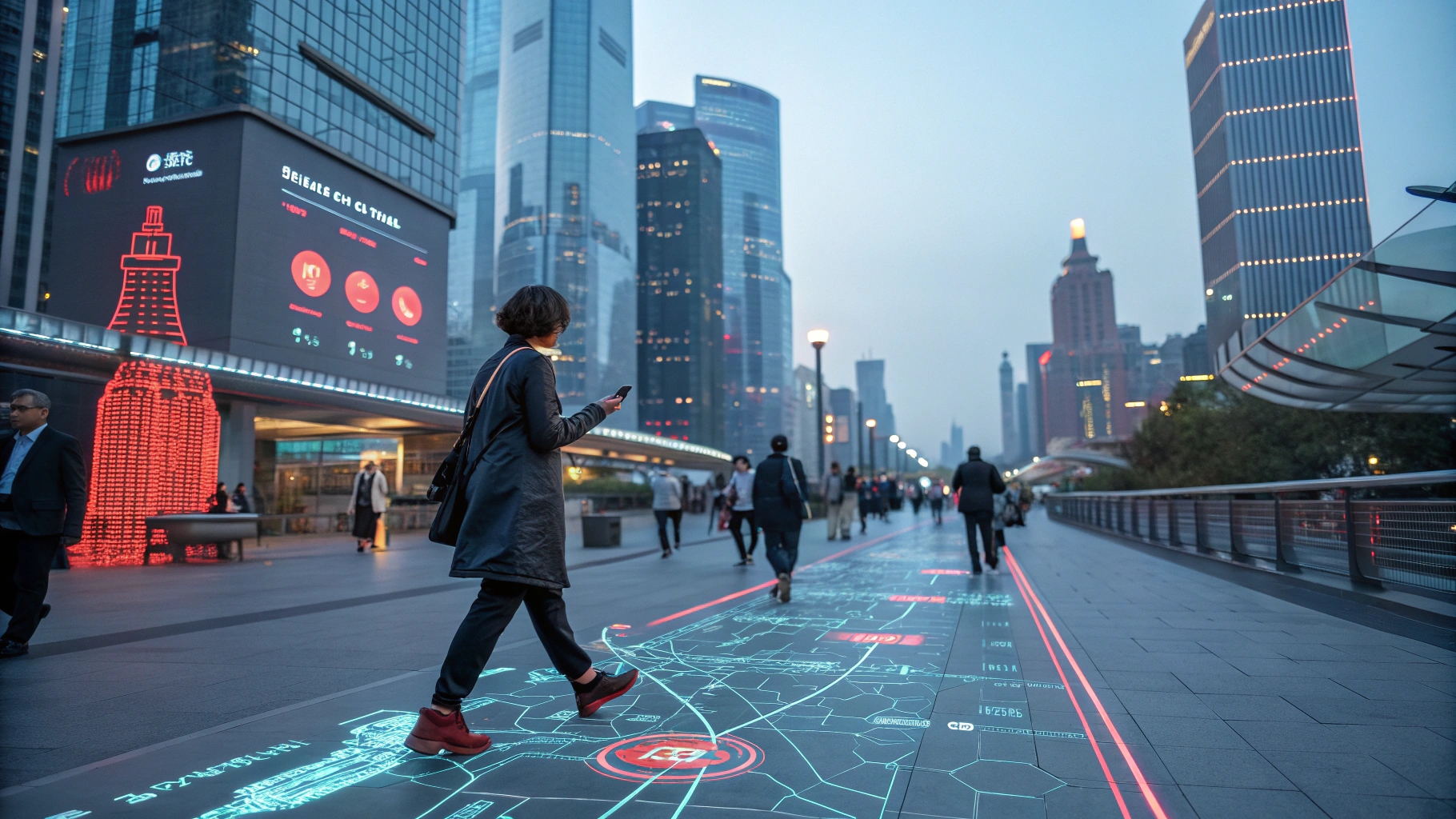Ever felt overwhelmed trying to track your health data and not knowing what it really means? You’re not alone. In today’s fast-paced world, managing health can feel like navigating a maze of conflicting information and tedious data points. Fortunately, AI health apps have changed the game. By integrating wearable devices, these apps provide personalized wellness tracking, delivering real-time insights and actionable advice tailored uniquely to you.
In this post, we’ll unpack how AI-powered health apps transform raw sensor data into meaningful health improvements, empowering you to take control of your well-being like never before in 2025.
Wearable Integration in AI Health Apps
Wearable technology forms the backbone of accurate health monitoring in AI health apps. These devices collect precise sensor data that AI algorithms analyze to tailor personalized wellness insights for users.
Types of Wearable Devices Commonly Used
- Smartwatches: Products like the Apple Watch Series 9, Samsung Galaxy Watch 6, and Fitbit Sense 2 are equipped with sensors monitoring heart rate, SpO2, ECG, and more.
- Fitness Bands: Affordable options like Xiaomi Mi Band 7 and Garmin Vivosmart 5 focus on activity tracking, steps, and sleep monitoring.
- Medical-grade Sensors: Devices such as continuous glucose monitors (CGMs), blood pressure monitors, and ECG patches provide clinical-grade data for chronic condition management.
How Wearables Capture Real-time Data
Wearables utilize multiple sensors that continuously measure biometrics such as:
- Heart rate variability (HRV): Key for stress and recovery tracking.
- Sleep patterns: Monitoring stages (REM, deep sleep) and disruptions.
- Activity levels: Steps, calories burned, and intensity of movement.
- Additional metrics: Blood oxygen saturation, respiratory rate, skin temperature.
These sensors provide a nonstop stream of health data capable of reflecting daily fluctuations and long-term trends.
Importance of Seamless Integration
The power of wearable integration lies in the synchronization between the device and AI health app:
- Data accuracy: Seamless syncing reduces errors from delayed or lost data transmission.
- User experience: Auto-updates and real-time data visualization keep users engaged effortlessly.
- Multi-device support: Supporting several wearables and sensor types in one app gives a comprehensive health picture.
To ensure reliable personalized wellness tracking, 2025’s AI health apps increasingly rely on cloud-based platforms and APIs that unite diverse sensor inputs into a cohesive user dashboard.
Personalized Wellness Tracking with AI
The true potential of AI health apps is unlocked through intelligent analysis of wearable-generated sensor data, enabling deep, personalized wellness tracking tailored for every individual.
How AI Analyzes Patterns and Anomalies
AI algorithms equipped with machine learning models sift through huge volumes of sensor data, extracting meaningful insights by:
- Detecting deviations: Identifying irregular heartbeats or abnormal sleep behavior early on.
- Recognizing trends: Monitoring gradual changes in activity or hydration levels linked to wellness goals.
- Understanding user context: Adjusting recommendations based on time of day, location, or user-reported symptoms.
This dynamic processing makes health tracking proactive rather than just reactive.
Customization Based on User Profiles and Behaviors
AI tailors wellness goals and interventions by factoring in:
- Demographics: Age, gender, weight, and medical history for accurate baseline setting.
- Lifestyle habits: Workouts, dietary preferences, sleep routines, and stress factors.
- Psychological metrics: Motivation levels, mood patterns, and compliance history.
Apps in 2025 go beyond generic targets by dynamically adjusting goals to realistic yet challenging benchmarks unique to each user.
Case Examples of Wellness Tracking Features
- Stress monitoring: Utilizing HRV data and breathing patterns, AI suggests mindfulness exercises or breaks before stress accumulates.
- Hydration reminders: AI learns user hydration habits and recommends personalized reminders optimized for activity and climate.
- Guided workouts: Tailored fitness sessions adapt in intensity based on daily energy levels and recovery status tracked via wearables.
These smart features foster a holistic, informed wellness approach, with personalized AI insights driving better lifestyle decisions.
Enhancing User Engagement through Intelligent Feedback
Sustaining motivation for health routines is notoriously difficult. AI health apps tackle this by offering intelligent, adaptive feedback systems fueled by continuous sensor data analysis.
Personalized Notifications and Insights that Adapt Over Time
Instead of generic alerts, AI health apps deliver:
- Context-aware notifications: Reminders sent at optimal times based on user behavior and sensor trends.
- Adaptive advice: Suggestions evolve as users improve or slip in performance, creating a responsive coaching experience.
- Encouragement and achievement recognition: Celebrating milestones through badges or social sharing boosts persistence.
Interactive Dashboards Displaying Progress and Trends
Visual data representation is critical for user engagement:
- Clear graphs: Heart rate variability, sleep quality scores, and activity heatmaps provide intuitive progress snapshots.
- Trend analysis: Insights summarize improvements or setbacks over weeks or months.
- Goal tracking: Visual progress bars and checkpoints help maintain user focus and accountability.
Such dashboards provide motivation by translating complex health data into meaningful, actionable narratives.
Role of Predictive Analytics in Preventing Health Issues
AI’s predictive power can identify early health risks before symptoms emerge by:
- Detecting pre-disease signals: Changes in resting heart rate or sleep irregularities may indicate illness onset.
- Forecasting risks: Predicting likelihood of conditions like hypertension or diabetes through longitudinal data.
- Triggering timely interventions: Encouraging medical consultation or lifestyle adjustments proactively.
This PREemptive capacity represents a paradigm shift from reactive healthcare to continuous wellness preservation.
Future Trends in AI Health Apps and Sensor Technology
The landscape of AI health apps and wearable integration is rapidly evolving, with emerging innovations shaping the future of personalized wellness tracking in 2025 and beyond.
Integration of Multi-modal Sensors
Next-generation devices increasingly combine multiple sensor types such as biochemical, optical, and motion sensors for a more complete health profile, including:
- Non-invasive glucose monitoring through optical spectroscopy.
- Electromyography (EMG) sensors monitoring muscle activity.
- Advanced environmental sensors tracking UV exposure, air quality, and hydration loss.
This multi-modal data fusion amplifies AI’s ability to deliver actionable insights.
Use of Machine Learning for Early Disease Detection
Machine learning models are growing more sophisticated in recognizing subtle physiological changes, enabling:
- Early diagnosis of cardiovascular diseases, respiratory issues, and neurodegenerative disorders.
- Continuous disease management through integration with medical devices and prescription adherence reminders.
- Personalized treatment adjustments based on real-time sensor feedback.
Privacy and Security Enhancements
With growing sensitivity around health data, 2025 AI health apps emphasize:
- End-to-end encryption safeguarding data from device to cloud.
- Compliance with HIPAA, GDPR, and emerging international standards.
- User-controlled data sharing allowing selective access for healthcare providers.
Maintaining trust through security is essential for widespread adoption.
Increasing Interoperability with Healthcare Providers and EHRs
Seamless data exchange with healthcare systems enables:
- Enhanced clinical decision-making using real-world sensor data.
- Improved chronic disease management via remote monitoring.
- Streamlined appointment scheduling and telemedicine integration.
Such interoperability culminates in a more patient-centered healthcare ecosystem.
Conclusion
AI health apps paired with wearable integration are revolutionizing personalized wellness tracking by turning raw sensor data into meaningful health intelligence. This empowers individuals to not just track but actively improve their well-being through tailored insights and predictive analytics.
To harness these cutting-edge innovations effectively, collaborating with trusted technology partners like WildnetEdge ensures robust AI capabilities, seamless sensor integration, and scalable solutions designed for better health outcomes. As personalized wellness becomes a standard expectation, solutions powered by WildnetEdge are uniquely positioned to lead this transformation.
Ready to elevate your health management through smart AI health apps? The future of personalized wellness is here—and it’s smarter than ever.
FAQs
Q1: What are the best AI health apps with wearable integration?
The best AI health apps seamlessly connect with popular wearables like Apple Watch, Fitbit, and Garmin to deliver personalized wellness tracking and actionable health insights. Apps such as WHOOP, Oura, and Halo Health utilize cutting-edge AI and sensor integration to optimize user health.
Q2: How does wellness tracking work in AI-powered health apps?
AI analyzes sensor data such as heart rate, sleep, hydration, and activity levels to identify patterns and anomalies. Based on this data, the app offers customized recommendations that adapt dynamically to your lifestyle and health goals.
Q3: Can AI health apps predict health issues early using sensor data?
Yes, advanced AI algorithms leverage machine learning to continuously monitor sensor inputs, detecting early warning signs of conditions like stress, arrhythmia, or glucose irregularities. This allows timely intervention before symptoms worsen.
Q4: Are AI health apps secure when integrating wearable data?
Reputable AI health apps prioritize data privacy with encryption, secure cloud storage, and compliance with healthcare regulations such as HIPAA and GDPR, ensuring your sensitive health information remains protected at all stages.
Q5: How can WildnetEdge enhance AI health app development?
WildnetEdge offers cutting-edge AI and integration expertise, accelerating development and optimizing sensor data processing for highly personalized health solutions. Their scalable platforms empower developers to create secure, efficient, and user-friendly wellness apps.

Managing Director (MD) Nitin Agarwal is a veteran in custom software development. He is fascinated by how software can turn ideas into real-world solutions. With extensive experience designing scalable and efficient systems, he focuses on creating software that delivers tangible results. Nitin enjoys exploring emerging technologies, taking on challenging projects, and mentoring teams to bring ideas to life. He believes that good software is not just about code; it’s about understanding problems and creating value for users. For him, great software combines thoughtful design, clever engineering, and a clear understanding of the problems it’s meant to solve.
 sales@wildnetedge.com
sales@wildnetedge.com +1 (212) 901 8616
+1 (212) 901 8616 +1 (437) 225-7733
+1 (437) 225-7733















 ChatGPT Development & Enablement
ChatGPT Development & Enablement Hire AI & ChatGPT Experts
Hire AI & ChatGPT Experts ChatGPT Apps by Industry
ChatGPT Apps by Industry ChatGPT Blog
ChatGPT Blog ChatGPT Case study
ChatGPT Case study AI Development Services
AI Development Services Industry AI Solutions
Industry AI Solutions AI Consulting & Research
AI Consulting & Research Automation & Intelligence
Automation & Intelligence













